Director
Adam Arkin is the Dean A. Richard Newton Memorial Professor in the Department of Bioengineering at the University of California, Berkeley and Senior Faculty Scientist at the Lawrence Berkeley National Laboratory. He and his laboratory develop experimental and computational technologies for discovery, prediction, control and design of microbial and viral functions and behaviors in environmental contexts.
He is the chief scientist of the Department of Energy Scientific Focus Area, ENIGMA(Ecosystems and Networks Integrated with Genes and Molecular Assemblies, http://enigma.lbl.gov), designed to understand, at a molecular level, the impact of microbial communities on their ecosystems with specific focus on terrestrial communities in contaminated watersheds. He also directs the Department of Energy Systems Biology Knowledgebase (KBase) program: (http://kbase.us) an open platform for comparative functional genomics, systems and synthetic biology for microbes, plants and their communities, and for sharing results and methods with other scientists. He is director of the newly announced Center for Utilization of Biological Engineering in Space which seeks microbial and plant-based biological solutions for in situ resource utilization that reduce the launch mass and improves reliability and quality of food, pharmaceuticals, fuels and materials for astronauts on a mission to Mars. Finally, he is the Co-Director of the Berkeley Synthetic Biology Institute, which brings together U.C. Berkeley and Lawrence Berkeley National Laboratory Scientists with Industry Partners to forward technology and applications for sustainable biomanufacturing.
Division Director

Craig Criddle is a Professor in the Department of Civil and Environmental Engineering at Stanford University, and a Senior Fellow at the Woods Institute for the Environment. He is the Institutional Co-I for CUBES at Stanford and the lead of the Biofuel and Biomaterials Manufacturing Division of CUBES.
Dr. Criddle is interested in the environmental engineering, science, and science literacy needed for clean water, clean energy, and healthy ecosystems. His research focus is environmental biotechnology. He is best known for large interdisciplinary field projects, studies of microbial
ecology in bioreactors, and work on microbial transformations of persistent contaminants. Some current projects include a field-scale evaluation of uranium remediation; DNA-monitoring of microbial community structure at full-scale biological wastewater treatment plants; development of membrane bioreactors for energy recovery and nutrient removal; and studies to elucidate the mechanisms and kinetics of microbial transformation of halogenated solvents. To promote science literacy, he worked with award-winning San Francisco cartoonist, Larry Gonick to write "The Cartoon Guide to Chemistry." "Cartoons can give us an intuitive feeling for the why, and deeper understanding can grow from that intuition."

Karen McDonald is a Professor of Chemical Engineering at the University of California at Davis. She also previously served as the Faculty Director and Co-PI of the UC Davis ADVANCE Institutional Transformation program, a NSF-funded program to recruit, retain, and advance women STEM faculty. She is the Institutional Co-I for CUBES at UC Davis and Division Lead for the Food and Pharmaceutical Synthesis Division.
Prior to leading the UC Davis ADVANCE program, she served as Associate Dean for Research and Graduate Studies in the College of Engineering for 13 years. She is a member of the graduate program/groups in Chemical Engineering, Biomedical Engineering, and Plant Biology and the Designated Emphasis in Biotechnology program. From 2003-2015 she served as the Co-Director of the NIH Training Grant in Biomolecular Technology at UC Davis, an innovative multidisciplinary research and educational training for doctoral students working at the interface of life sciences and engineering/physical sciences in application areas related to human health. From 2006-2013, she was the PI and Director of the NSF Collaborative Research and Education in Agricultural Technologies and Engineering (CREATE) IGERT, an interdisciplinary graduate training program with Tuskegee University focused on applications of plant biotechnology to biopharmaceuticals, biorefineries and sustainable agriculture.
Dr. McDonald and her collaborators apply synthetic biology tools in plants for the development of novel expression systems as well as applying bioprocess engineering technologies to produce recombinant proteins (including human therapeutic proteins, enzymes for cellulose degradation, and biopolymers for materials applications) using whole plants, harvested plant tissues, or plant cells grown in bioreactors. As a biochemical engineer, she is interested in translational research and strives to develop novel biomanufacturing processes that are scalable, cost effective, and meet a variety of design constraints. She has lead large multidisciplinary research teams such as a Defense Threat Reduction Agency-funded project to develop a platform for plant-based production of bioscavengers against biothreat agents.
Faculty

Brooks Abel is an Assistant Professor in the Department of Chemistry at the University of California, Berkeley and staff scientist in the Materials Science Division at LBL. He received a B. S. in Polymer Science and a Ph.D. (2016) in Polymer Science and Engineering (NSF Graduate Fellowship) from the University of Southern Mississippi. His Ph.D. work under the advisement of Prof. Charles McCormick focused on synthesizing stimuli-responsive water-soluble polymers using controlled radical polymerization methods for applications such as drug delivery and water remediation. Following his graduate studies, he worked as a postdoctoral researcher with Prof. Geoffrey Coates at Cornell University (2017-2021) where he developed bifunctional Lewis acid catalysts for the alternating ring-opening copolymerization of epoxides and cyclic anhydrides to synthesize well-defined polyesters. While at Cornell, he also developed a new living cationic ring-opening polymerization of cyclic acetals, enabling the synthesis of high molecular weight polyacetals thermoplastics capable of near-quantitative chemical recycling back to monomer. His independent research interests lie in the areas of sustainable polymer organic chemistry, ionic polymerizations, catalysis, polymer stereocontrol, and polymer recycling.
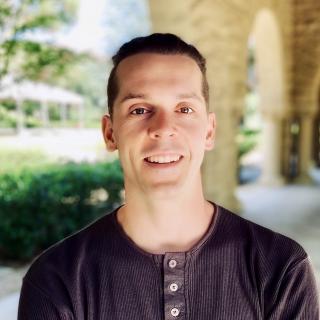
Nils was formerly a member of the academic research staff as part of the Criddle-lab at Stanford University. For CUBES he is developing microbial cell factories that convert C1-carbons into high-performance polymers that can serve as materials for consumables and durable goods. He is also an Analog Astronaut, demonstrating biomanufacturing capabilities in the field (at a Space Exploration Analog and Simulation Habitat), as a proving ground for Mars. Will join University of Florida as assistant professor.

Bruce Bugbee is Professor in the Department of Plants, Soils, and Climate at Utah State University. He received his PhD from Penn State University and his MS from the University of California at Davis. He joined the faculty at Utah State University in 1981.
Dr. Bugbee uses controlled environments to examine plant-environment interactions. His research has included phytoremediation, algal biofuels, photobiology, and plant water relations. His career has been guided by the idea that teaching is the highest form of understanding. He has mentored 33 graduate students, eight of whom are now on the faculty at other universities. He was awarded the Utah Governor's Medal for Science in 2012, the D. Wynne Thorne lifetime research achievement award in 2016, and the Distinguished alumni award from Penn State University in 2017. He recently gave a TEDx talk titled, “Turning water into food.”

Amor Menezes is an Assistant Professor in the Department of Mechanical and Aerospace Engineering at the University of Florida. He is the Science Principal Investigator of the five-year, multi-university, Center for the Utilization of Biological Engineering in Space (CUBES), a NASA Space Technology Research Institute in biomanufacturing for deep space exploration. He also leads the Systems Design and Integration Division of CUBES.
Dr. Menezes' research interests are in dynamical systems theory and control, with applications to the fields of systems biology and synthetic biology. He is an IEEE Senior Member. He was a 2015 Emerging Leader in Biosecurity and a 2015 fellow of the Synthetic Biology Leadership Excellence Accelerator Program.
He was an Associate Project Scientist in the California Institute for Quantitative Biosciences (QB3) at the University of California, Berkeley from 2016 to 2017, and a QB3 Postdoctoral Scholar from 2011 to 2016. He was a Research Fellow between 2010 and 2011 in the Department of Aerospace Engineering at the University of Michigan, where he received a Ph.D. as an NSERC Post-Graduate Scholar and Michigan Teaching Fellow in 2010, and a Master of Science in Engineering as a Milo E. Oliphant Fellow in 2006. He graduated from the University of Waterloo in 2005 with a Bachelor of Applied Science in Mechanical Engineering with Distinction, Dean's Honors (top 10%), and the Sandford Fleming Co-op Medal.

Somen Nandi is an Adjunct Professor in the Department of Chemical Engineering and the Managing Director of Global HealthShare® initiative at the University of California, Davis.
Dr. Nandi has been working on molecular breeding technology to produce the heterologous proteins in different platforms for past 18 years. He has extensive experience on the application of bioprocess engineering technologies to produce recombinant proteins (including human therapeutic proteins and enzymes) using seeds, whole plants, harvested tissues or cells grown in vitro in bioreactors as hosts, improve efficacy of target molecule by enzymatic glycan modification and performing techno-economic analyses. This multidisciplinary effort led to the development of five products, now in the market and two molecules in human clinical trials. He is interested in translational research and continually strives to develop processes that are scalable, cost effective, and meet quality specifications and regulatory requirements. Somen leads large multifaceted programs and is experienced teaching and mentoring both in developing and developed countries, including managing teams with diverse expertise, cultural, and ethnic backgrounds. Somen’s research efforts in CUBES are to produce therapeutic proteins and food via optimization of plant metabolic engineering and in limited resource environment like Mars.
Senior Scientist

Jake hails from the far-away lands of the Midwest. He received his Bachelor's degree in Genetics from the University of Wisconsin-Madison where he was introduced to the world of scientific research through the study of the evolution of gene expression regulation in the yeast Saccharomyces cerevisiae. Upon graduation, Jake began his graduate work in Marine Studies at the University of Delaware where he studied the regulation of energy metabolism in green sulfur bacteria (the Chlorobiaceae). Being a microbiologist that had always admired synthetic biology from a distance, and one that was enamored with space exploration, Jake joined the Arkin Lab at the University of California-Berkeley as a postdoc to pursue applications of microbial engineering to space exploration and colonization. Jake's research interests include environmental microbiology, microbial physiology/systems biology, genetics, synthetic biology, and space bioengineering.
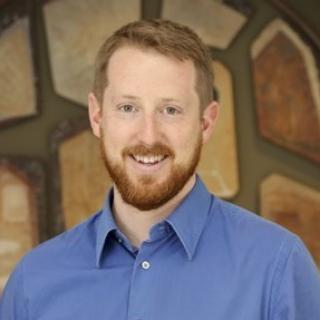
kbsander [AT] berkeley [DOT] edu
Kyle Sander grew up in Portland, Oregon and attended Oregon State University earning a B.S. in Chemical Engineering. He interned at a Georgia-Pacific Containerboard Mill for a year as an Environmental/Process Engineer, and then went on to earn an M.S. degree in Biological and Ecological Engineering studying life cycle effects of algae production for fuels and co-products. He also investigated rapid sand filtration as an algal dewatering process step and enzymatic degradation of, and simultaneous saccharification and ethanol production from, of algal cell biomass.
Kyle earned his PhD from the University of Tennessee, Knoxville conducting his thesis research within the BioEnergy Science Center at Oak Ridge National Laboratory. Kyle focused on characterizing and engineering regulatory genes and related cellular redox in two candidate lignocellulolytic, ethanol-producing biocatalysts; Clostridium thermocellum and Caldicellulosiruptor bescii. Basic redox metabolism was characterized in C. thermocellum, yielding an expanded view of redox metabolism in this organism, as well as a set of promising redox-active metabolic loci which were targeted in subsequent engineering for ethanol yield improvement done by others. Single-gene deletion mutants of promising regulatory gene targets in C. bescii were generated and screened in bioprocessing-relevant conditions to assess the engineering potential of each gene target. Deletion of a global redox sensing transcription factor (Rex) enabled C. bescii to synthesize 75% more ethanol and allowed us to comprehensively describe the unique Rex regulon in this organism. A genotype-phenotype relationship was identified between the FapR local fatty acid biosynthesis repressor and this organism’s tolerance to elevated osmolarity conditions, a highly complex, bioprocess-limiting, and difficult-to-engineer trait.
Outside of the lab, Kyle enjoys running, reading, rock-climbing, spending time with family and friends, and becoming more familiar with his new Berkeley and California surroundings.
Technical Staff

Allie graduated from the University of Georgia with a BS in Microbiology and a BA in Music, where she studied protein-lipid droplet localization behaviors in yeast models in the Starai Lab. She has previously interned in the Foster Lab to examine the effects of simulated microgravity on animal-bacteria symbioses in order to understand how spaceflight alters host-microbe interactions. Currently, she is working in the Averesch Lab to research bioplastic production through microbial engineering. She hopes to pursue a PhD to explore solutions to existing challenges in space biology, biotechnology, and environmental sustainability. In her free time, she enjoys playing piano, learning traditional Chinese instruments, and crocheting.
Cassandra is a highly motivated and curious senior undergraduate in the Bioengineering department at UC Berkeley, with a specific focus on cell and tissue engineering. She has previously worked in immunology research, where she formulated antibody-conjugated lipid nanoparticles and assessed their transfection into antigen presenting cells for their possible use as mRNA therapeutic delivery vehicles. She has also worked in polymer research, where she contributed to the standardization of nanoindentation as a modality for retrieval analysis of the polymer component from total knee replacement. Through her coursework and research experiences, she has developed a strong interest in the field of synthetic biology which she hopes to utilize to solve problems caused by the climate crisis, with the increasingly necessary exploration of space being one of these issues. Currently, she is working with Gwyneth Hutchinson and NASA CUBES to engineer Spirulina for pharmaceutical and flavor production with applications for supporting human exploration of space. She hopes that through this work and further research done through a PhD program and beyond, she will be able to assist in finding solutions to climate-related issues. In her free time, you can catch her at the roller rink, or on a hike in the Berkeley hills. She also enjoys crocheting and reading novels.

Gwyneth Terry is a senior administrator supporting Adam Arkin and his laboratory at Berkeley Lab and University of California, Berkeley. She has a BSc in geology from Cal State East Bay. She assists lab personnel with the UCB and LBL bureaucracy and helps moves science forward.
Postdoctoral Scholar

Dr. Aaron J. Berliner is a postdoctoral scholar at the University of California Berkeley, as well as the major domo of the NASA-funded Space Technology Research Institute (STRI) CUBES (Center for the Utilization of Biological Engineering in Space). He obtained both his Ph.D. in Bioengineering under Dr. Adam Arkin and his M.S. in Nuclear Engineering under Dr. Bernstein from UC Berkeley in 2022. Prior to this, he studied biomedical engineering, and synthetic & systems biology at Boston University. Dr. Berliner began his career at the NASA Ames Research Center under Dr John Hogan and Dr. John Cumbers, where he worked on projects involving 3D printing, bioelectrochemistry, and astrobiology. In 2013, he joined the Life Sciences group of Autodesk Research in San Francisco, working on diverse projects such as bioprinting, software engineering, synthetic virology, and DNA origami. Accepting that he had caught the “space bug,” he returned to academia to help establish CUBES and begin work on Crucible, an open-source reactor for space synthetic biology experiments.
With a strong background in bioengineering, nuclear engineering, and systems engineering, Dr. Berliner has made significant contributions to the field of Space Bioprocess Engineering (SBE), an interdisciplinary field integrating bioengineering principles to develop biotechnologies for long-term space missions. His primary focus has been designing a biomanufactory-driven reference mission architecture for human exploration of Mars, aiding space agencies in their mission planning by providing parametric designs on requirements and operational aspects driven by specific biological systems, including advanced life support, biological and chemical manufacturing, and in situ resource utilization (ISRU). Dr. Berliner's vision is to harness living systems to support off-world biomanufacturing, realizing the inherent mass, power, and volume advantages offered by biotechnology over traditional mechanical and chemical approaches. His expertise and commitment to the field in the integration of bioengineering into human space exploration has most recently been acknowledged with his acceptance of a lectureship at UC Berkeley in the new Program in Aerospace Engineering.

Sulogna Chatterjee is a Postdoctoral Fellow in Criddle-group at Stanford University where she is working on Metabolic Engineering of autotrophic microorganism for better carbon efficiency and production of high-performance bioplastics.
Dr. Sulogna is a DST Inspire Fellow, holds a PhD degree in "Environmental Biotechnology & Microbiology" from "CSIR- Indian Institute of Chemical Technology", India. Her research interest is carbon conversion, waste valorization, bioprocess designing, bioreactor operations, fermentation technologies, bioenergy production and circular biorefinery systems.
During her PhD she has published several high impact research papers and has been awarded the “Research Excellence Award” by BRSI-India and "Best Research Fellow Award" by CSIR-India. She has also represented 'India' in C3E- Women in Clean Energy Education Empowerment Symposium organized by U.S Department of Energy, MIT Energy Initiative, Stanford Energy and Texas A&M University, 2019.

Zohaib Siddiqi was born in Brooklyn, New York, but was raised in the Bay Area, California. He pursued his B.S. in chemistry at the University of Michigan Ann Arbor, where he conducted research on melt-cast energetic materials with Professor Adam Matzger and MOF supported homogeneous catalysts with Professor Melanie Sanford. He obtained his Ph.D. in 2023 under Professor David Sarlah at the University of Illinois Urbana–Champaign, where his work was focused on the dearomative oxidation of aromatic and heteroaromatic compounds, as well the dearomatization of commodity polymers. Afterwards, Zohaib joined the lab of Professor Brooks Abel at the University of California Berkeley, where his work will be focused on developing novel methods for controlled cationic ring opening polymerizations.
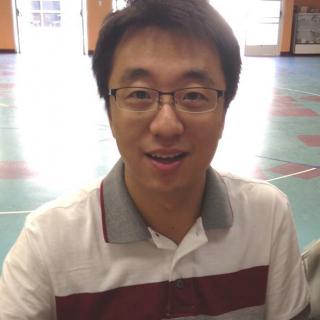
Sunggeun Woo earned his B.S. and M.S. from Yonsei University in South Korea. During his B.S. and M.S. programs, he studied in the civil and environmental engineering department and he narrowed down his research focus to environmental biotechnology in his M.S. program, where he wrote fifteen papers for about two and a half years including five of them as the lead-author. At that time, the research topics were various in the field of environmental biotechnology including wastewater treatment systems, isolation and cultivation of microorganisms and harnessing renewable bio-diesel from microalgae. Based on the wide range of understandings, Sunggeun Woo joined the Criddle group for his Ph.D. program in September, 2012 focusing on the Coupled Aerobic-anoxic Nitrous Decomposition Operation (CANDO) project. Sunggeun Woo participated in developing the CANDO process which produces a renewable energy, nitrous oxide (N2O), from nitrogen pollutants through microorganisms. During his Ph.D. program, Sunggeun Woo's main focus was to elucidate the microbial members that produce N2O and the metabolic pathways in them related to N2O and polyhydroxybutyrate (PHB) production. He graduated from Ph.D. program in January, 2018 and he is now continuing his research as a post-doctoral scholar in the Criddle group. His research is currently focusing on the recovery of renewable energy and materials from waste or wastewater using microorganisms.
Graduate Student

Jackson is primarily interested in the discovery and creation of novel biological systems that can be used in faucets of bioremediation, human health, and space exploration. He has researched bacteriophages in depth, has discovered and annotated novel phages, and has investigated bacteriophage mechanisms of lysis. He has also done bioinformatics work regarding intrinsic disorder in Merkel Cell Polyomavirus and has explored HECTD3's involvement in cancer. He is a proponent of undergraduate research and learning and has developed a program to certify undergraduates in basic lab techniques to better prepare them for academic research. Currently, he is pursuing a PhD at UF and is teaching, taking courses, and working with Dr. Averesch researching bioplastic production.
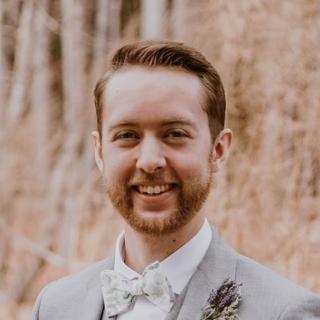
Brendan obtained a B.S. in Horticulture from the University of Georgia in 2017 and graduated in 2019 with a dual M.S. in Crop and Soil Science and Sustainable Agriculture from the University of Georgia and Università degli Studi di Padova, respectively. He is presently working toward completion of a Ph.D. in Plant Science at Utah State University's Crop Physiology Laboratory. His graduate research work encompasses photobiological studies and development of novel resource supply, monitoring and control approaches for the plant root-zone in microgravity that are capable of sustaining multiple, successive plant generations.

Born and raised in Salt Lake City, Utah. Obtained my bachelor’s in graphic design from the University of Utah where I also commissioned into the US Air Force. Received my master’s in Human Services: Health and Wellness from Liberty University. I am leaving active duty for a couple of years to finish my master’s in microbiology and gain experience in the field.

Katie is a PhD student in the Biomedical Engineering Graduate Group at UC Davis working in the McDonald/Nandi Lab. She received her BS in Biomedical Engineering from the University of Oklahoma, where she worked under the NASA EPSCoR STEM Workforce Development grant to develop targeted nanoparticles for therapeutic delivery. Her current work uses plant viruses to separate antibodies and Fc-fusion proteins from crude feedstocks for the production of biopharmaceuticals in space.

Gwyneth graduated from UC Berkeley in 2020 where she did nearly 3 years of research and a fellowship in reproductive neuroendocrinology, chronobiology, and cellular biology. She then transitioned to the UCSF-Gladstone Institute of Neurological Disease where she pursued novel research into the contributions of cellular energy metabolism and bioenergetic failure into neurodegenerative disease pathogenesis. Following this, she worked as a Senior Research Associate at Conception Biosciences where she focused on the development of biotechnologies to turn stem cells into viable eggs for individuals and couples to overcome physiological, age-based, and sexuality-based barriers to reproductive success. With NASA CUBES, Gwyneth is developing innovative approaches to build on the Arkin Lab’s recent successes engineering Spirulina for nutrient, pharmaceutical, and flavor production with applications for supporting human exploration of space. She is devising innovative ways to further improve the efficiency of engineering this previously recalcitrant organism and determining the best routes for metabolic engineering of these critical products. She is also interested in pursuing questions surrounding human physiology and reproduction in space with the goal of improving health outcomes for astronauts and space travelers both during missions and upon return to Earth. When she’s not in the lab, Gwyneth loves to spend time with her puppies—Willow and Pandora—and play guitar. She also fancies herself an amateur shark diver and is on the Board of Directors for a literacy nonprofit.
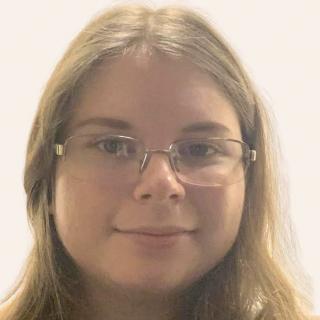
Angela received a B.S. in Aerospace Engineering from the University of Florida in 2021. She is currently a graduate student in the Department of Mechanical and Aerospace Engineering at the University of Florida where she works with Dr. Amor Menezes. Her work in CUBES is in the area of food and pharmaceutical synthesis and includes modeling of plant-based production of biologics in space as well as AI-based control of environmental conditions to maximize food production.
Noah received a double B.S. in Biochemistry and Biology from the University of Wisconsin - Stevens Point in 2020. He is currently pursuing a Ph. D. in Plant Science as a graduate research assistant in the Crop Physiology Lab at Utah State University in Logan, Utah. Noah's interests include optimizing hydroponics systems and plant nutrition for efficient production in closed systems. Outside of CUBES, he enjoys backpacking, geocaching, and flying general aviation airplanes.

Lorenzo is a Master's degree student in Agro-food Biotechnology in Verona (IT). He earned his Bachelor's degree in Biotechnology in Pavia (IT) and he works as a research student in Davis. His previous experience mostly concerns plant biotechnology as he worked in molecular biology and protein purification of Zeaxanthin epoxidase.

Vrinda Sharma is a graduate student in the CEE department at Stanford. She is working in the Criddle group on engineering autotrophic microorganisms for P4HB polymer production. She received a B.A. in Biological Sciences from Cornell University in 2022 and worked on impact of biocides like Triclosan on soil microorganisms Stenotrophomonas maltophilia in Hay Lab. Post graduation, she worked as Research Associate I in the Microbial Engineering team in Pivot Bio where she got interested in synthetic biology for environmental applications
Tressa is a PhD candidate in the Biochemistry, Molecular, Cellular and Developmental Biology graduate group at UC Davis. She earned her B.S. in Environmental Systems: Ecology, Evolution and Behavior at UC San Diego. Previously she worked on harnessing microalgae for production of lipids for biofuels, as well as production of recombinant therapeutic proteins. Her current work is focused on producing recombinant therapeutic proteins for use in space by engineering whole plant systems.

Shanice is a PhD student in the Chemical Engineering department at the University of California, Davis, working under Dr. Karen McDonald and Dr. Somen Nandi. She earned her B.S. and M.S. in Chemical Engineering at Northwestern University, and has prior experience with bacterial synthetic biology and metabolic engineering. She worked as a pilot operations engineer at Edwards Lifesciences before returning to school. Her current research involves the purification of pharmaceuticals in transgenic plants within the scope of the NASA CUBES II project.
Outside of research, Shanice enjoys running, hiking, gaming, and arts and crafts.
Wienke is a graduate student in the Bioscience Engineering program at Ghent University, specializing in biochemistry and biotechnology. Currently, she is a visiting student intern at the University of Florida, collaborating with Dr. Nils Averesh on microbial physiology and metabolic engineering, with a particular focus on carbon metabolism and biopolymer synthesis.
Her ongoing research, a collaboration with Lucerne University of Applied Sciences and Arts and the European Space Agency (ESA), investigates the effects of microgravity on gene expression patterns in intervertebral discs (IVD), offering insights into cellular adaptation in space environments.
Previously, Wienke worked on projects involving the engineering of advanced enzybiotics as next-generation antimicrobial agents, employing molecular biology techniques to develop effective treatments. She has also focused on enzyme immobilization, using concanavalin A to create carriers for β-galactosidase, and contributed to the development of designer cellulosomes for biofuel production by optimizing enzyme cascades for efficient biomass degradation.

Justin is a PhD student in the Chemical Engineering Department at the University of California, Davis. He earned his B.S. in Chemical Engineering at Northeastern University and worked as a bioprocess development engineer for Synlogic before returning to school. His current research focuses on using modified plant viral particles for the purification of antibodies and Fc-fusion proteins, and the production of pharmaceuticals in transgenic plants
Undergraduate Student

Milan is an undergraduate student at Rice University studying Electrical and Computer Engineering with a Data Science & Systems specialization. He is interested in utilizing synthetic biology and environmental biotechnology and combining it with artificial intelligence to create sustainable methods of food production, mitigate issues caused by rapid climate change, and assist in deep space exploration.
At CUBES, he is currently working with Dr. Hilzinger to build a cyanobacteria pan genome and utilizing it to understand and analyze the evolution of important phenotypes across different variants (e.g. multicellularity) using machine learning.

Hue is an undergraduate student studying Bioengineering and Electrical Engineering and Computer Science at UC Berkeley. She is interested in exploring the intersection between synthetic and computational biology with hopes of harnessing an application towards enhancing biomedicine and sustainability. She is working with Dr. Hilzinger in the FPSD division of CUBES to help develop innovative approaches toward improving the metabolic engineering of A. platensis for small molecule production. By enhancing the production of pharmaceuticals, nutrients, and flavors in Spirulina, the project aims to support human exploration of space. In her free time, Hue enjoys traveling, watching sunsets at the beach, swimming, and crocheting.

Ishan is a 1st year undergraduate student studying Microbial Biology at UC Berkeley. He is passionate about biopharmaceuticals and its application across diverse fields of study, including in space exploration. Ishan is working under Dr. Hilzinger on the CUBES project to develop genetic tools in A. platensis for improved metabolic engineering. Additionally, he is investigating CRISPR/Cas-9 and its use in developing new plasmids for this bacterium.

Kylie Akiyama is a second-year undergraduate student at UC Berkeley majoring in bioengineering. She is especially interested in the field of synthetic biology and how we can utilize it in the context of space exploration. Kylie is currently within the FPSD division of CUBES, working to improve the group's capacity to metabolically engineer A. platensis for small molecule production.

Snigdha is an undergraduate at UC Berkeley (Class 2025) studying Genetics and Plant Biology. She is working with Dr. Sander on the CUBES project investigating the growth coupling of polyhydroxyalkanoate production in species of Cupriavidus for applications in space exploration. She is interested in studying the genetic engineering of metabolic pathways in bacteria and algae, especially in the broader context of sustainability.

Isaac Lipsky is a senior undergraduate student at UC Berkeley studying environmental science. In concert with Aaron Berliner, he is working on developing cost-benefit metrics for Mars surface operations. His interests include planetary science and the tantalizing prospect of Martian terraforming.

Eliana Matos is a highly motivated student pursuing her studies in Bioengineering, with a specific focus on cell and tissue engineering. She has experience working and volunteering with a myriad of organizations, which range from nonprofit hospitals to YMCA Camp Campbell. Here, she effectively applies her optimistic outlook and critical thinking skills. Throughout her undergraduate career, Eliana has explored a broad range of classes and clubs, delving into fields such as neurotechnology, health care advocacy, as well as advanced mathematics and sciences related to engineering. While she expresses an interest in the path towards medical school, she remains fascinated by the multitude of opportunities that bioengineering could potentially offer her. For instance, during her first year of college, she co-authored a research paper on the potential for bioengineering in space exploration, an experience that utterly astounded her. The prospect of integrating her major with space exploration filled her with an exhilarating sense of anticipation.
Eliana, as an individual, is extremely optimistic and consistently seeks the positive aspects in every situation. When she is passionate about a project, her perfectionism surfaces, propelling her to ensure that she executes every task to the best of her abilities. Eliana is willing to devote extra time to projects that pique her interest and often finds herself thrilled when encountering new challenges from which she can learn and grow. She places a high value on efficiency and aims to accomplish tasks correctly on the first attempt. Additionally, she prioritizes constructive criticism and communication, cherishing the opportunity to receive advice and learn new methods for tasks or adapt to new work environments.
Eliana also has a keen interest in applying what she has learned to make a positive impact on her community and the wider world.
Katie is an undergraduate from New York City studying Bioengineering and Electrical Engineering and Computer Science at UC Berkeley. She is interested in exploring the interdisciplinary connections between computer science and synthetic biology for therapeutic applications. Her past research experience includes altering strain specificity of phage-like molecules and developing small molecule therapeutics for immunosuppression.
Through CUBES, she will be working under the FPSD division towards metabolically engineering A. platensis for small molecule production. Katie hopes to pursue a PhD in Bioengineering after graduation to strength her experimental planning and scientific analysis skills. In her free time, she enjoys trying new foods, traveling, hammocking, crafting, and spending time with friends and family.

Hanen is an undergraduate at UC Berkeley studying Bioengineering. He is interested in utilizing computational and synthetic biology to reduce plastic pollution, develop new drugs and diagnostics, and improve food production and the environment, especially in poorer regions of the world. At CUBE, he is focusing on engineering microbes to produce bioplastics useful for applications in space missions as well as on Earth.
After undergrad, Hanen plans to pursue a PhD in bioengineering or biotechnology to grow as a scientist. He aims to start a company one day focusing on using bioengineering to address environmental and food insecurity issues around the globe.
As a San Franciscan native, Hanen enjoys exploring the Bay Area, sports, and reading in his free time.

Justin Wahyudi is an undergraduate student at UC Berkeley studying Bioengineering and Electrical Engineering and Computer Science. Justin is interested in exploring synthetic biology and understanding the various applications that the field offers in healthcare and pharmaceutical settings. He is currently working under Dr. Jacob Hilzinger in the FPSD division of CUBES to help genetically engineer A. platensis for the purpose of pharmaceutical production and supporting advances made in space exploration.

Xina Wang is an undergraduate student at UC Berkeley studying chemical biology and data science. She is interested in the potential of harnessing biosystems found in nature for applications in biomanufacturing and biomedicine through the intersection of synthetic biology and computational tools. Currently, she is engaged in engineering microbes to produce bioplastics for human space exploration as well as for industrial or environmental applications on Earth.
Alumni

Anthony Abel is a Ph.D. student in Chemical Engineering in the Clark Laboratory at UC Berkeley. Previously, he earned his B.S. in Chemical Engineering and M.S. in Materials Science at Drexel University in Philadelphia, PA, where he developed solution deposition techniques for inexpensive semiconductor materials. He has previously worked for the National Renewable Energy Laboratory, where he designed reactors for the sustainable production of hydrogen via photoelectrochemical water splitting.
Anthony’s research interests lie at the intersection of chemical engineering, materials science, and microbial synthesis. Within CUBES, he will focus on the simulation and design of hybrid bioinorganic reactors and engineering microbes to function optimally within this artificial environment.
In his spare time, Anthony is a mentor for Bay Area Graduate Pathways to STEM, and enjoys reading science fiction and playing squash.

Joyleen is currently a freshman, studying aerospace engineering in the first ever class of that major at UC Berkeley. She was always interested in space exploration, which is why she joined CUBES with Aaron Berliner to work in the Systems Designs and Integration Division. Her other interests include tennis, reading, and adopting cats.

Jeremy Adams is a Ph.D. student in Chemical and Biomolecular Engineering at UC Berkeley, currently working in the Clark Lab. He received a BSE in Chemical Engineering from Arizona State University in 2017. Jeremy’s research interests lie in the intersection of synthetic biology and biochemical engineering, particularly towards the development of sustainable biomanufacturing processes. His work in CUBES involves engineering lithoautotrophic microbes to convert Mars-available resources into useful products, as well as engineering export pathways of those products to simplify downstream separation processes. In his free time, Jeremy enjoys traveling and scuba diving.
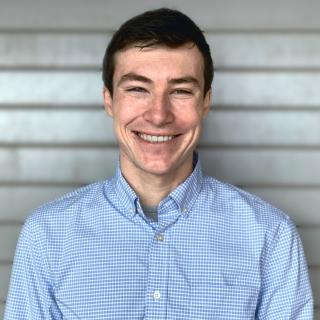
Dexter is a first year Ph.D. student in Chemical Engineering at UC Davis in the McDonald-Nandi Lab. He received his B.S. in Chemical Engineering from Columbia University, New York and his B.A. in Chemistry from University of Puget Sound, Washington through a Dual Degree Program. He is currently developing stable lines of transgenic lettuce, which express a parathyroid hormone fusion protein.

Artavazd Badalyan received a Diploma in chemistry from the Lomonosov Moscow State University in Russia and a Ph.D. in analytical biochemistry in the group of Prof. Ulla Wollenberger from the University of Potsdam in Germany where he focused on the bioelectrochemistry of molybdenum hydroxylases and on the development of electrochemical biosensors. He was a postdoctoral research associate with Prof. Shannon Stahl at the Department of Chemistry at the University of Wisconsin-Madison in the field of organic electrochemistry where he developed a novel bioinspired electrocatalyst system for the low-potential alcohol oxidation. Following a position at the Draegerwerk AG as a project leader in the field of electrochemical sensors, he joined the group of Prof. Lance Seefeldt at the Department of Chemistry and Biochemistry at the Utah State University and works on the (bio)electrocatalysis for nitrogen fixation.

Alex is a second year Aerospace Engineering student at the University of Florida. He is working under Dr. Amor Menezes in the Systems Design and Integration division. He has been a member of CUBES since November 2018. He is interested optimizing mission parameters to minimize mission costs and increase viability. His work at the University of Florida also includes the applications of model-free control to space missions.

Sophia is a sophomore at UC Berkeley studying Molecular & Cellular Biology and Economics. She was initially drawn to CUBES because of their work with In-situ Resource Utilization and is interested in studying different forms of life in strenuous environments. In her free time she enjoys surfing, playing soccer and reading novels.

Brooklyn Brace is a third year undergraduate student at UC Berkeley studying Molecular and Cell Biology. She has an interest in microbiology and genomics and how they apply to bioengineering. In the Arkin Lab, Brooklyn is currently working in the MMFD division investigating genes important for nitrogen fixation. Previously, Brooklyn worked in a synthetic biology lab at Columbia University working on the development of a multiplexed drug screening platform.

Daniel received his Ph.D. in Plant Biology with a designated emphasis in biotechnology from the University of California, Davis in 2017. Daniel’s research utilized a multidimensional approach to better understand the immune response initiated by XA21, a rice immune receptor that provides resistance to bacterial leaf blight (BLB) disease. As part of his Ph.D. studies, Daniel also performed research at the International Rice Research Institute in the Philippines, where he used marker-assisted selection to develop stacked resistance to BLB in the Swarna-Sub1 rice variety, which is tolerant to flooding and favored by millions of subsistence farmers in India. Daniel also interned with East-West Seed Group in Thailand, where he developed genetic markers to distinguish isolates of Colletotrichum spp. causing pepper anthracnose and Fusarium oxysporum f. sp. momordicae causing Fusarium wilt on bitter gourd.
Daniel is currently a post-doctoral scholar in Devin Coleman-Derr’s group at the University of California, Berkeley where he is exploring ways to minimize the challenges of extraterrestrial farming, including finite resources and limited growing space within controlled-environment agricultural systems. Focusing on rice, Daniel is using a microbiome-based approach to select plant growth promoting bacteria that enhance phosphorus and water-use efficiencies. Additionally, he is using CRISPR/Cas9 based-gene editing to generate rice plants with increased conversion efficiency of light into edible biomass.
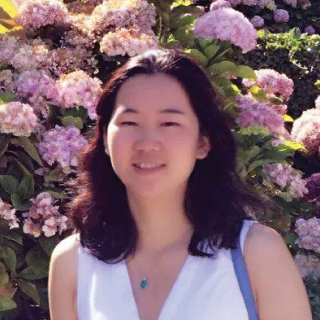
Rong Cai is a postdoc in the Yang Group at the University of California, Berkeley. She received her Ph.D. degree in Chemistry Department from the University of Utah in 2019. Her research focuses on understanding the electron metabolism of microbes and designing inorganic material to deliver electron to bacteria efficiently.
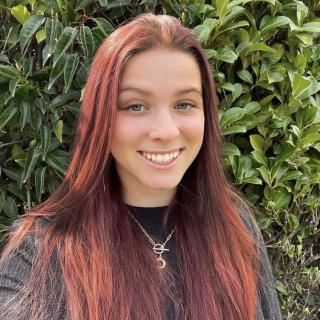
Cameran Casale is a second year undergraduate student at UC Berkeley studying bioengineering. She is currently working with Aaron Berliner in the Systems Design and Integration Division of CUBES. In her time at this lab, Cameran is interested in exploring different biological applications within space systems, such as the utilization of biologically derived materials in the development of nanoscale devices. When she's not in the lab or studying for school, Cameran is usually out playing beach volleyball or bass guitar.

Stefano Cestellos-Blanco is a Ph.D. student in Materials Science & Engineering in the Yang Group under the direction of Professor Peidong Yang at the University of California, Berkeley. He received his B.S. degree in Chemical Engineering from Stanford University in 2016. His research interests lie at the intersection of inorganic materials and molecular biology. He envisions a future in which nanoengineered materials work in cooperation with the natural world. Stefano is investigating biohybrid catalytic systems for the fixation and utilization of CO2 and N2 in the MMFD division of CUBES.

Skyler Chan is studying Electrical Engineering and Computer Science at UC Berkeley, and he has wanted to become an astronaut since he was 3. In high school, he learned how to fly gliders, and was involved in various student-led space organizations. One of his goals is to make humanity an interplanetary species within our lifetime, and he joined CUBES to advance this mission. Currently, he builds in the Systems Design and Integration Division of CUBES. He is interested in exploring sustainable design on Mars, such as, how to build the first self-sufficient Martian cities. To Skyler, the idea that the choices we make designing the first Martian habitats today will have an impact on the future of humanity never gets old. In his free time, he can be found flying drones, PR-ing at the gym, and filming videos with friends.
Adam is from Elk Grove, CA, but was born in San Francisco and is well-accustomed to life in the Bay Area. He became interested in engineering when he was very little, building Lego sets and working on home construction projects with his uncle. Not knowing much about bioengineering coming into university, Adam tried learning about different disciplines alongside his initial classes and prioritized gaining skills over hyper-focusing on curriculum, which is where his passion for software engineering developed. His goal is to become a software engineer at a biotech company, so that he can use his programming skills and knowledge of biological systems in tandem to make software and tools that can help the next generation of scientists manipulate and visualize experiments in a more concise and efficient way. Outside of engineering, he loves making art (painting and drawing with any medium he can get his hands on), watching k-dramas and anime, cooking with his friends, and hiking. After graduation, he hopes to travel to places like South Korea and France to learn more about other cuisines and cultures. Adam believes that we all owe it to ourselves to try as many things as possible, so we can find out what we like and don't like to do, and of course where we are exceptional and what needs improvement.
Zain earned a BA in Planetary Science from UC Berkeley. He developed an interest in spaceflight at a young age watching launches at Cape Canaveral. Even as a child he was interested in sustaining human life in space. He hopes to live to see the day when humanity has a permanent Mars colony. On top of his interest in space, Zain has an interest in medicine and hopes to eventually be a physician-scientist. He discovered his interest in medicine after taking biochemistry classes, where he became fascinated by the interconnected chemistry of the human body. In the future, Zain plans to attend medical school and apply in depth knowledge of human biology to space colonization efforts. He joined CUBES just after graduating from UC Berkeley in May 2022. At CUBES, he helps define states for bioastronautics software under Aaron Berliner. In his free time, Zain likes to make music on his guitar and piano, hike, and volunteer with the American Lung Cancer Screening Initiative.
Wesley Chuang is a 1st year Ph.D. student in Chemistry at the University of California Berkeley in Professor Yang's Group. He received his B.S. degree in Chemical Engineering from National Taiwan University in 2017 and M.S. degree in Chemical and Biomolecular Engineering from University of California Berkeley in 2019. His research interest is focused on the CO2 fixation via bio-hybrid system in the MMFD division of CUBES.

Calvin (Tae Hyun) is pursuing his PhD in Civil and Environmental Engineering at the University of Alberta, Canada, under the supervision of Professor Bipro Dhar. His research scholarly pursuits center around advancing microbial electrochemical technologies, focusing on the development of bioelectrochemical sensors for the detection of naphthenic acids in oil sands process water, as well as exploring microbial electrolysis cell-assisted anaerobic digestions and microbial electrosynthesis systems for the conversion of carbon dioxide into biomethane and for biogas upgrading applications. Presently, he is a visiting scholar in Professor Craig Criddle's laboratory at Stanford University. As part of the CUBES project, Calvin works under the mentorship of Professor Craig Criddle and Dr. Nils Averesch, where he is involved in converting methane and methanol into para-hydroxybenzoic acid (pHBA) using methanotrophs through metabolic and genetic engineering. His academic excellence is also recognized through prestigious awards such as the Izaak Killam Memorial Graduate Scholarship and the Canada Graduate Scholarship from the Natural Sciences and Engineering Research Council of Canada.
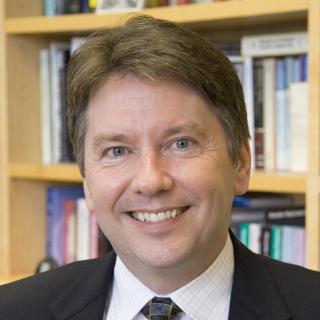
Doug Clark is the Gilbert Newton Lewis Professor in the Department of Chemical and Biomolecular Engineering and the Dean of the College of Chemistry of the University of California Berkeley.
Dr. Clark’s research interests are in biochemical engineering and biocatalysts. His research is in the field of biochemical engineering, with particular emphasis on enzyme technology, biomaterials, and bioenergy. Current projects include the structural characterization and activation of enzymes in non-aqueous media, the development of metabolic biochips for high-throughput catalysis and bioactivity screening, protein design and assembly for the development of advanced biomaterials, and enhanced conversion of lignocellulosic feedstocks to biofuels.

Dr. Coleman-Derr received his graduate education at the University of California at Berkeley in the lab of Dr. Daniel Zilberman in the Plant and Microbial Biology Department, studying mechanisms of epigenetic regulation of transcription in the model plant Arabidopsis. He then completed a post-doctoral research position at the Joint Genome Institute in the group of Dr. Susannah Tringe studying the microbial ecology of the root systems of desert succulents; in this role he also served as bioinformatic support on multiple JGI collaborative metagenomic research efforts involving analysis of 16S rRNA tag data from a variety of environmental and host-associated samples. Dr. Coleman-Derr now leads a research team for the United States Department of Agriculture’s Agricultural Research Service, where he aims to improve our understanding of the effect of abiotic stress on the plant microbiome, and to help identify plant growth promoting microbes capable of alleviating drought stress in their plant hosts. Current research involves several projects related to drought stress response in Sorghum bicolor (sorghum), including investigations into the changes in rhizosphere community composition under drought stress, a genome wide association study to reveal host loci controlled by drought tolerance-inducing root endophytes, and a screen of a collection of cereal endophytes for the ability to confer drought tolerance in sorghum. Dr. Coleman-Derr was awarded the USDA’s Scientist of the Year Award in 2017 for his contributions in this area.
Jesse Delzio is a third year biochemical engineering undergraduate at the University of California, Davis. He began research with Dr. Somen Nandi and Dr. Karen McDonald in July 2017 and is currently researching drug purification through the functionalization of viral coat proteins to be used for simpler isolation in low resource environments such as Mars. He is currently working under the mentorship of Matthew McNulty. His interests include chemical engineering, biotechnology, and plant engineering. Jesse has investigated the expression and capture of recombinant parathyroid hormone from different lettuce varieties. He has also provided calculations of land area and expression levels required to sustain a team of astronauts on Mars.
Prior to his research in the McDonald-Nandi lab, Jesse worked as a lab intern for a chemical company in San Diego called Designer Molecules Inc. His main interests were chemistry and physics. He applied to the University of California, Davis and studied chemical engineering for his first two years. After discovering a project involving biomanufacturing for deep space exploration led by Dr. McDonald, Jesse's interest in biotechnology and biology grew, urging him to switch majors to biochemical engineering. He has been researching for the Center for the Utilization of Biological Engineering in Space on their Mars exploration project ever since.

Anna received her B.S in Biotechnology from National Technical University of Ukraine and M.S. in Microbiology from the University of Oklahoma, where she was a Fulbright Scholar. She got her Ph.D. in Biological Engineering from Utah State University. Her M.S. thesis research focused on characterization of ultra-small microorganisms from anoxic sulfur-rich pond using bioinformatics. For her Ph.D. research, Anna worked with local municipal and industrial wastewater treatment facilities to improve microbial transformation of organic waste compounds and algal biomass into valuable bioproducts, such as biogas and bioplastic. She also developed a computational model describing anaerobic microbial granulation in the upflow anaerobic sludge blanket reactors.
Anna is currently a postdoc in the group of Prof. Lance Seefeldt at Utah State University and is working on engineering nitrogen-fixing purple non-sulfur bacteria and bioprocess design.
Saige is a fourth year at the University of Florida studying Aerospace Engineering. She is working with Dr. Amor Menezes under the Systems Design and Integration division. She is interested in the effects of space travel on biological systems and using alternative solutions to mitigate problems cause by long term missions.

Kristian is an NSERC post-doctoral fellow in Environmental Engineering and Science at Stanford University. His current research focuses on: Hard-wiring bacteria in a microbial battery, salinity gradient energy production from a mixing entropy battery, and PHB bioplastic production from C. Necator. His PhD was in Chemical and Biological Engineering from the University of British Columbia in Vancouver.

Jithran Ekanayake grew up in Sri Lanka and moved to the United States in 2016 to study biology at Carleton College, MN on a Starr Foundation scholarship. He is now a graduate student in the Department of Agricultural and Biological Engineering at the University of Florida, where he works with Dr. Amor Menezes and the Systems Design and Integration Division of CUBES to develop experimentally-validated models of space biomanufacturing processes in low-shear modeled microgravity.
Outside of space synthetic biology, he is interested in pararescue, resilience education, and how space exploration could function as a propellant for the peaceful unification of people and nations across the globe.
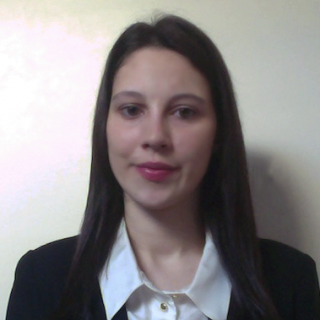
Pauline received a bachelor's degree and a master's degree in pharmaceutical sciences from the University of Lyon, France. She is currently a visiting scholar in the Department of Chemical Engineering in the McDonald Laboratory at UC Davis.

Daphne is an undergraduate student at Purdue University studying Engineering Technology Education with minors in Computer Information Technology, Global Studies, Biological Sciences, Biotechnology, and Design & Innovation. She has previously been involved with the HHMI SEA-PHAGES project at Purdue University discovering and characterizing novel bacteriophages. Additionally, she has previously written and edited for a variety of science communication publications.
Within CUBES, she is working with Kyle Sanders on the Numerical Modeling team as a SULI intern, where she is using Julia to analyze relationships within a microbial ecosystem for implantation into the rhizosphere of O. sativa.

Skyler Friedline received his BS in Biochemistry and Molecular Biology from UC Santa Barbara in 2016. He is new to the fields of synthetic biology and microbial engineering but is motivated to learn quickly and make an impact. He began working as a research associate and lab manager in Adam Arkin's UC Berkeley Lab in 2019. He is interested in the development of microbes enabling closed loop living in space and on earth.

Wakuna is a PhD candidate in the environmental engineering program working with Prof. Craig Criddle. Her research focuses on the microbial degradation of methane in mixtures (biogas and natural gas) for the production of biodegradable polymers called polyhydroxyalkanoates (PHAs). Wakuna is interested in understanding the impact these methane mixtures have on microbial communities, the dynamics between the microbial interactions under certain complex conditions, while optimizing the polymer production process and bacterial growth rates. In addition to research, Wakuna is quite passionate about tutoring and mentoring.
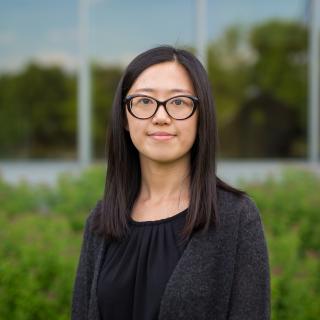
Wenyu Gu is currently a postdoc at Stanford University.

Dr. Gözde Gülseren is a postdoctoral associate in the Averesch Group at the University of Florida, where she is focused on advancing space-based myco-processing technologies. She earned her B.S. in Food Engineering from Istanbul Technical University (ITU) in Turkiye, and completed her M.S. in Food Engineering and Sustainability through a joint program between ITU, the University of Chemistry and Technology in Prague (Czechia), and Centrale Supélec (France). Dr. Gülseren’s professional experience spans food product development and fermentation, areas in which she has applied her extensive academic training. She received her Ph.D. in Food Science and Human Nutrition from the University of Florida, where her research centered on the functionality of edible mycelia. During her doctoral studies, she was awarded a prestigious INFOGEST Short Term Scientific Mission Grant, enabling her to conduct research at the National Research Institute for Agriculture, Food and Environment (INRAé) in France. Dr. Gülseren's academic and professional achievements have been recognized with numerous honors, including the Silver Celebration Award and a third-place finish in the Student Oral Competition by the Institute of Food Technologists (IFT).

Soumyajit Sen Gupta has been a member of the SDID division of the CUBES since March 2018. Prior to joining the CUBES as a post doctoral research associate with Dr. Amor Menezes, he was a doctoral research scholar at Indian Institute of Technology, Bombay since 2012. His doctoral thesis was on integrated plant-wide optimization of microalgae biorefinery, co-producing fuel, food and chemicals. He is a Bachelors' (2010 batch) from Jadavpur University and Masters' (2012 batch) from Indian Institute of Technology, Kharagpur; both these degrees have been in the discipline of Chemical Engineering. His research interests are in the area of systems design, modeling and optimization, renewable energy and process systems engineering.

Derek F. Harris is a Postdoctoral Fellow in the Seefeldt group at Utah State University. He received a B.S. in biology from Dixie State University and a Ph.D. in biochemistry from Utah State University.
Dr. Harris is interested in the mechanism and evolution of nitrogenase enzymes, as well as applications of nitrogenases unique catalytic properties.

Avery is a third year undergraduate student at UC Berkeley, currently working towards a double major in Economics and Molecular and Cell Biology with an emphasis in developmental genetics. She is interested in how the intersection of her two academic disciplines come together to further the research behind space exploration. In CUBES, Avery is working towards optimizing an elemental balance in a martian biomanufacturing system. Previously, Avery worked at the University of Michigan on research relating to metabolic control in the immune system and the development of new drugs for the treatment of autoimmunity and cancer.
In the future, Avery would like to pursue a career in the biotechnology industry.

Davian is a second year Berkeley undergrad studying Electrical Engineering and Computer Science. In CUBES, he is working on the interface for space resource modeling software. Davian is also investigating phages in the gut microbiome as part of ENIGMA, and makes vector graphics.

Brendan, originally from Austin, TX, is a second-year chemical engineering major with a concentration in biotechnology. His research interest lies in the intersection of chemical engineering and synthetic biology. As a part of CUBES, Brendan is currently working with postdoctoral scholar Jacob Hilzinger to genetically engineer cyanobacteria to produce useful biomass in both Earth-based and Mars-based economies.

Mackenzie Jones received her B.S. in Botany from Utah Valley University. She is currently a graduate student at Utah State University working in the Crop Physiology Laboratory in pursuit of a Ph.D. in Plant Science. Her interests of study include plant nutrition, soil fertility, and nutrient cycling. For the CUBES effort, Mackenzie's research will focus on optimizing plant nutrition in controlled environments for long-term space travel.
Farrah is a second year undergraduate student studying Bioengineering and Electrical Engineering and Computer Science. In the past, she did computational biology research at UCSD working on genome-scale metabolic modeling. She joined CUBES in late Fall of 2021 working under Aaron Berliner. Currently, Farrah is working with Davian to create a crew-member model that simulates how crew members consume and waste resources during space travel and extravehicular activity.
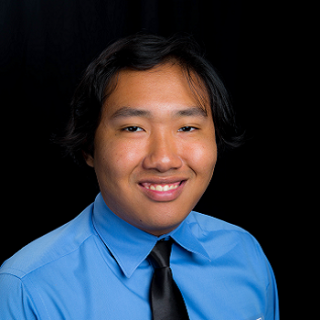
Alexander Kamentz is a 2nd year Ph.D. student in Mechanical Engineering in the SYBORGS Lab under Amor Menezes at the University of Florida. He received his B.S. degree in Mechanical Engineering from the University of Florida in 2019. His research interest is focused around stochastic control theory in the SDID division of CUBES.

Kalimuthu Karuppanan is a Postdoctoral scholar in the Department of Chemical Engineering, at the University of California, Davis. He received his Ph.D. in Biotechnology and M.S. degree in Plant Science from Madurai Kamaraj University, India. Since he has been at UC Davis Dr. Karuppanan has contributed to a number of research projects funded by DARPA, DTRA, and NSF and he has mentored many Ph.D. students and undergraduate researchers. He was the instructor for ECH161L, Bioprocess Engineering Laboratory course, in 2014 at UC Davis. He received the campus-wide Award for Excellence in Postdoctoral Research in 2016 and Phil Thai Memorial Award in Medicine for Lung Research in 2015 for his outstanding research performance. He is a co-inventor in a recently filed patent on Novel Fusion Proteins for Treating Inflammatory Diseases. Dr. Karuppanan is a CUBES Co-PI and member of the Food and Pharmaceutical Synthesis Division.
His research is in protein biotherapeutics for treating infectious and non-infectious diseases. He has extensive experience in recombinant protein bioprocessing in planta. His work includes gene design, designing vector systems for agrobacterial-mediated gene transfer in plants, protein expression using plants and plant cell suspension cultures, protein purification using affinity and traditional chromatography systems, biophysical and functional characterization of recombinant proteins, and drug efficacy improvement by enzymatic glycan modification.

Dania Khan is a fourth year undergraduate student at UC Berkeley studying chemical engineering. In CUBES, her work involves the simulation of hybrid bioinorganic reactors. Prior to transferring to Berkeley, she was a student at Foothill Community College and worked on research related to asphaltene aggregation at oil/water interfaces, as a part of the Fuller Group at Stanford.
Imran Khan received PhD fellowship from German Academic and Exchange Service (DAAD) for his doctoral study at Institute for Molecular Biotechnology, RWTH Aachen University, Germany. He also served Vienna Institute for Biotechnology, Vienna, Austria, as researcher where he investigated expression and targeting of recombinant proteins in plant tissues. He also received research funding as PI and supervised PhD and master students working as Assistant Professor at Center for Interdisciplinary Research, Islamabad, Pakistan. He completed his postdoctoral study from University of Bonn, Germany that was also funded by DAAD, Germany. In 2019, Imran received Penn Biomedical Postdoctoral fellowship for postdoctoral study at School of Dental Medicine at University of Pennsylvania, Philadelphia, USA, where he worked on oral delivery of plant made biopharmaceuticals using Chloroplast production system, in collaboration with Takeda, Japan. He joined Dr. McDonald/Nandi lab in 2021 at University of California, Davis, USA, as Assistant Project Scientist. His current research focus on development of platform technologies for bio-manufacturing on Mars to provide food and pharmaceuticals for colonists, funded by National Aeronautics and Space Administration (NASA), USA.

Ji Min Kim is a 1st year Ph.D. student in Materials Science and Engineering at the University of California Berkeley in the Yang Group. She received her B.S. degree in Materials Science and Engineering from Hanyang University in 2016 and M.S. degree in Materials Science and Engineering from Seoul National University in 2018. Her research interest is focused on the CO2 fixation via a semiconductor nanowire-bacteria hybrid system in the MMFD division of CUBES. The system utilizing light capturing high surface area nanowire array and acetogenic anaerobes enables the photoelectrochemical acetic acid production with long-term stability.

Paul Kusuma received a bachelor’s degree in horticulture from the University of Florida, and is now pursuing a PhD in plant physiology at Utah State University.

Rhesa discovered her scientific interest many years ago in a high school chemistry class. Her inspirational teacher, Mr. Best—the stereotypical science geek with large bug-eye glasses—taught Rhesa many scientific lessons, but perhaps the greatest was that science is not just for nerdy boys (as her flawed logic thought), it is for anyone.
Currently, a Ph.D. student in the Department of Chemistry and Biochemistry at Utah State University, Rhesa can be found at the laboratory bench doing research focused on understanding and harnessing the amazing abilities of microorganisms. Specifically, she studies the microbial transformation of nitrogen (N2) to ammonia (NH3). This process is a critical part of nature as the majority organisms cannot utilize N2 directly, but need it in a form like NH3 for growth and reproduction. The few microbes that facilitate this conversion provide valuable insight into one of the most biologically challenging reactions and may serve as a catalyst for developing systems for sustainable ammonia production on Mars.
In additional to research, Rhesa also serves as a science reporter for Utah Public Radio and plans to pursue a career in science education and/or communication. Her excitement for not only doing science, but communicating it just might stem from growing up doing musical theater, which she loves. She also enjoys experiencing other cultures, and hot-potting is always on her list of things to do (and yes, it’s partly to see the beautiful microbial mats)!
Anderson Lee is a third-year undergraduate student at UC Berkeley studying Bioengineering with a focus on Synthetic and Computational Biology. He is currently optimizing the production of biopharmaceuticals to be utilized during space travel. In previous companies, he has developed an ELISA procedure to determine the concentration of a tumor-detecting drug in biological samples and enhanced a mobile, quick diagnostic machine that scans for viruses. Previous to the Arkin Lab, he worked in Mohammed Mofrad's Cell and Biomechanics Laboratory at UC Berkeley where he used neural networks with backpropagation to predict a virus' host based on the genome of the virus.
In the future, he sees himself using synthetic biology to conquer problems inherent to the nature of space travel. He believes that technology already present in nature and perfected with evolution can be the key to send humans to other planets.

Elizabeth (Libby) Lineberry is a Chemistry Ph.D. student in the Yang Lab at the University of California, Berkeley, where she works on photosynthetic biohybrids. She received her B.S. in chemistry from Bethany College in 2021. Libby’s research interests include photoelectrochemistry, microbiology, and the combination of these fields to lead to a highly selective artificial photosynthesis system.
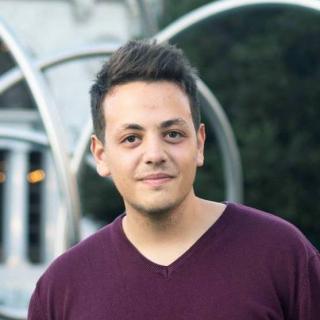
George earned a B.S. in Chemical Engineering and a M.S. in "Process, Simulation, Optimization, and Control" from the University of Patras (Greece) in 2016 and 2018, respectively. While there, he was a member of the “Laboratory of Fluid Mechanics and Rheology” where his research focused on the rheology and numerical simulation of flows involving complex yield-stress fluids. He is now pursuing a PhD in Chemical Engineering at University of California, Berkeley, working in the “Process Systems and Control Laboratory”. His current research interests lie in learning-based optimal control of complex systems that intrinsically contain uncertainties. As a member of CUBES, he will be part of the SDID, focusing on systems engineering, process modelling, dynamic optimization and control. His motivation for studying Chemical Engineering was his particular interest in mathematics as a high-school student, as well as his enthusiasm in applying scientific principles towards solving real-world problems.

Matt received his B.S. in Chemical Engineering from the University of Massachusetts, Amherst. He previously worked as a process engineer for Sanofi Genzyme. His current research focuses on developing a novel biologically-derived bioseparations platform for limited resource environments.

Jorge is originally from Chicago where he attended Loyola University Chicago and received his B.S. in Environmental Science with a Chemistry Minor. After his undergraduate studies, he attended Stanford where he obtained his M.S. in Environmental Engineering and where he has continued as a PhD student working with Professor Craig Criddle. His research focuses on biotechnology with an emphasis on efficiently utilizing waste streams to produce biological materials (e.g., bioplastics, biofuels). As part of the CUBES effort, Jorge's research involves identifying organisms that can thrive on the limited amount of resources available for long-range space travel.
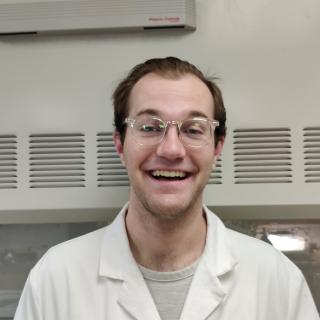
David Merkley is an undergraduate student at Utah State University in his Junior year. He is studying computational mathematics and pre-med. David is from Centerville, Utah and has 3 brothers. When he is not studying for school, you can find David either wakeboarding or skiing the slopes.
David has always wanted to help out other people, which is one reason that led to him towards becoming a physician. David has always said that he wanted to feel like he was helping to make a difference in the world. Another reason is that the human body fascinated him. Wondering how medications interacted with the cells, enzymes, and other elements of the body was something that was always a question for him. He wanted to understand more about the human body and how all of the different parts worked in unison.
One way that you could describe David would be, welcoming and hilarious. He is genuinely concerned with others surrounding him and wishes the best for them. He can always make someone smile, even when they're having a rough day. Individuals seem to feel at ease around him.

Ali Mesbah is an Assistant Professor in the Department of Chemical and Biomolecular Engineering at the University of California Berkeley. Dr. Mesbah's research interests are in optimization-based systems analysis, fault diagnosis, and predictive control of uncertain and stochastic systems.
Before joining UC Berkeley, Dr. Mesbah was a senior postdoctoral associate at MIT. He holds a Ph.D. degree in systems and control from Delft University of Technology. Dr. Mesbah is a senior member of the IEEE and AIChE. He was awarded the AIChE's 35 Under 35 Award in 2017 for his contributions in the area of systems and process control.

Mia Mirkovic is a second-year undergraduate student in the Electrical Engineering and Computer Sciences department at the University of California, Berkeley pursuing mixed-signal processing and circuit design. Her interests include systems modeling and control, imaging, representation theory, modern music technology and history, and radio.
She works with Aaron Berliner on the development of Crucible, an open-source, 3D-printable chamber for space synthetic biology experiments, and mathematical models for Martian in-situ resource utilization for life support, power, and an integrated, multi-function, multi-organism bio-manufacturing system to produce fuel, food, and materials. These models will likely underlie a software package for accelerating mission design and simulation.
Dr. Takashi Nakamura received his Ph.D. in Aeronautics and Astronautics from MIT and his B.S. in Aeronautical Engineering from the University of Tokyo. Currently, he is the manager of Space Exploration Technologies at Physical Sciences Inc. (PSI), and has been involved in numerous R&D programs sponsored by NSF, NASA, DoE and DoD.
Dr. Nakamura has been developing, with funding from the Air Force and NASA, a unique space solar power system for power generation, propulsion, materials processing, and plant lighting in space. This concept is based on the use of optical fibers for transmission of solar radiation, the concept Dr. Nakamura pioneered in 1976 while he was at Japan's Electrotechnical Laboratory. Dr. Nakamura is an Associate Fellow of AIAA, a member of AAS and Sigma Xi.
Patrick is a first-year student in the Chemical Engineering department at UC Davis, where he works in the McDonald-Nandi lab. He earned his BS in Chemical Engineering at UC Berkeley. Patrick joined CUBES because he is passionate about biotechnology and hopes to improve the safety and feasibility of space missions.

Vince is a first-year Ph.D. student in chemistry at Stanford University; he is interested in creating biodegradable organic materials as well as designing materials processing techniques such as additive manufacturing in order to make functional parts from biodegradable materials feasible for replacing petroleum based plastics. His role in CUBES will be to create and optimism polymeric systems based on methanotrophic polyhydroxyalkanoate production for the closed-loop manufacturing of tools. Before starting his graduate work at Stanford, he studied mechanical engineering and chemistry at Colorado School of Mines where he created block copolymer materials for hydrogen fuel cell membranes and computed degradation mechanisms for small molecule bis-azide species. He also worked as a design engineer at RICOH where he designed, 3D printed, and tested small parts for improving large-scale ink-jet printer functions. Vince likes to hike and carve wood in his free time.

Lauren Payne is a second year undergraduate student at Utah State University studying Plant Science. She interns at the USU Crop Physiology Lab, assisting graduate students with experiments involving plant growth conditions. In CUBES, she aids Noah Langenfeld with projects in nitrogen recycling and nutrient optimization in hydroponic systems.

Max Perko is a third year chemistry undergraduate at Stanford, studying biosynthetic polyester vitrimers for additive manufacturing in the Waymouth lab. His research is being performed in conjunction with that of Vince Pane (of the Waymouth lab) and the Criddle lab (Stanford Biology), for the Center for the Utilization of Biological Engineering in Space (CUBES) on their Mars exploration project.
Kim is a second-year undergraduate student studying Bioengineering. She is interested in the applications of engineering and science in space exploration. In CUBES, she will be working on exploring species of cyanobacteria and developing a pan-genome.

Tiago is a visiting doctoral student from the Humans on Mars project of the University of Bremen, Germany. As a part of his doctorate project, he is looking to convert cyanobacterial biomass produced on Mars from in-situ resources into a plant fertilizer and other products of interest. To carry out this conversion both anaerobic digestion and bioelectrochemical systems are employed and explored within a wet lab and modelling context. The overarching goal is to explore Mars sustainably by harnessing local resources and reducing shipped payload mass. During his research stay, he will be working on the bioplastic production by C. necator and the modelling of the cyanobacterial biomass processing.

Lance C. Seefeldt is Professor of Chemistry and Biochemistry at Utah State University. He received his PhD in Biochemistry from the University of California at Riverside and was a Postdoctoral Fellow in the Center for Metalloenzyme Studies at the University of Georgia. He joined the faculty at Utah State University in 1993. He is the recipient of the D. Wynne Thorne Research Award and is a Fellow of the American Association for the Advancement of Science. He is the Utah State University Institutional PI and lead of the Microbial Media and Feedstock Division of CUBES.
Dr. Seefeldt’s research focus is on biological nitrogen fixation. He has been investigating the mechanism of activation of N2 by the bacterial enzyme nitrogenase. This work has recently lead to the insight that metal-hydrides are central to the reduction of N2 to NH3. He is also investigating how to grow nitrogen fixing bacteria with electrodes as a way to accomplish light-driven reduction of N2 and CO2 as a way to capture and make available these resources from the Martian atmosphere.

Will is an undergrad at UC Berkeley studying molecular biology and math. He is captivated by the potential of synthetic biology and the application of modern methods of engineering to biology whether in microbes, mammalian cells, or multi-organism communities. In CUBES, Will models and designs microbial communities for agricultural enhancement. Previously, he has worked on metabolic engineering for the production of biofuels and commodity chemicals, directed evolution for the bioremediative degradation of plastic, and microRNA circuits and protein engineering for immunotherapy.
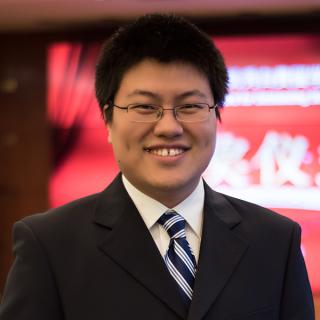
Yuexiao Shen joined Prof. Peidong Yang’s group at UC Berkeley as a postdoc in October, 2017. He finished his Ph.D. from the department of Chemical Engineering at Penn State in 2016. During his Ph.D., he worked on several projects in the interdisciplinary areas of chemical engineering, biology, chemistry and material science. He was focused on developing bioinspired membranes using membrane proteins that mimic the rapid and selective transport as seen in biological membranes. He extended to explore the potential of mimicking biological channels and lipids using supramolecular chemistry and investigating them using biophysical techniques. Yuexiao finished his bachelor and master degrees at Tsinghua University, where he studied environmental engineering. His academic accomplishments include several high-quality publications in journals such as PNAS, JACS and Journal of Membrane Science (JMS), and have been recognized by nationwide academic organizations with a number of very competitive awards. Yuexiao has already been offered an assistant professor position at Department of Civil, Environmental, and Construction Engineering at Texas Tech.
Fengzhe is an undergraduate at Beijing Jiaotong University and now an exchange student at UC Berkeley studying computer science. He is interested in data mining, deep learning and interdisciplinary tasks. In CUBES, Fengzhe mainly works on modeling deep learning methods in dynamic systems. Previously, he worked in a computer science lab at Peking University on an information retrieval and recommender system.
Divya is a third year undergraduate student at UC Berkeley majoring in Bioengineering. She screens Spirulina mutants as they are generated and help in the development of better transformation methods for this organism in FPSD.

Jeffrey Skerker's research focuses on engineering complex traits in microbes using a systems metabolic engineering approach. He has worked on a variety of non-model bacteria and fungi and is particularly interested in developing methods for high-throughput genetics and genome engineering. In the CUBES program, he will help develop Arthrospira platensis (commonly known as Spirulina) as a source of nutrition and medicine. In the initial phase of this project, a basic genetic toolbox will be developed for this organism and then as proof of concept, a two-gene pathway for the production of acetaminophen (i.e. Tylenol) will be integrated into the genome. Although Spirulina is widely grown at the industrial scale as a nutritional supplement, very little strain genetic engineering has been reported in the scientific literature.

Spencer is originally from Colorado Springs. He received a B.S. in biochemistry from Brigham Young University - Idaho. Currently, he is pursuing a Ph. D in Biochemistry at Utah State University.
Mathangi Soundararajan is a PhD candidate from India currently at Utah State University advised by Lance Seefeldt. She has also been awarded the Presidential Doctoral Research Fellow by Utah State University. She majored in biotechnology in her high school, and went on to get her Bachelors in Biomedical Sciences from Sri Ramachandra University. In her junior year, she was awarded the Undergraduate Summer Research Fellowship by Sri Ramachandra University to study the effects of dairy intake on inflammatory biomarkers in people with Type 2 Diabetes. She also worked as a Research Assistant at the Institute of Mathematical Sciences during her final year, where she studied the genetic susceptibility of Type 2 Diabetes patients to colorectal cancer using bioinformatics methods. Graduating at the top of her batch, she was awarded the 'Best Outgoing Student' medal as well. Her current research interest includes understanding and applying biological nitrogen fixation in bioelectrochemical systems. Her undergraduate research experience has also contributed to her interest in understanding metabolism and the effects of derangements in metabolism. When she is not losing track of time in the research lab, you can find her catching up on TV series and Netflixing.
Alex Starr is a second year undergraduate at University of California Berkeley with interests in synthetic and molecular biology, applied math, artificial intelligence, and the utilization of biology in space exploration. As part of CUBES, he is working to develop a system for the detoxification and enrichment of Martian regolith using the perchlorate reducing bacterium Azospira suillum PS. Prior to joining CUBES, Alex studied expression of genes related to root growth in sunflowers and worked on understanding the genetic basis of drought-tolerant root phenotypes in maize.

Alex graduated from Georgetown University in 2014 with a B.S. in Environmental Biology with a focus in community ecology. Following graduation, he moved to the University of Kentucky to study how bacterial symbionts mediate insect ecology in agricultural systems.
Now, pursuing a PhD in Plant Biology at UC Berkeley, Alex studies plant-associated microbial communities from shoots to roots. In cassava, a tropical root crop, Alex investigates the phyllosphere ecology and carryover of the microbiome between planting seasons. For CUBES, he aims to construct synthetic bacterial communities via host-mediated selection to better grow rice in space. As both a Trekkie and wannabe farmer, Alex is very excited to be a member of FPSD.

Currently Su is a postdoctoral researcher working with Professor Peidong Yang at University of California, Berkeley. His current research focuses on the bioelectrochemical CO2 fixation and N2 reduction. He received his Ph.D. degree in Chemistry on September 2017, with Professor Peidong Yang at University of California, Berkeley. During the Ph.D., he was awarded the MRS Graduate Student Award and the Chinese Government Award for Outstanding Self-financed Student Abroad. Su obtained his B.S. degree in Chemistry from University of Science and Technology of China on 2012, before joining the Peidong Yang Group as a graduate student.
Chris Szikszai worked with the Waymouth group, summer of 2017, testing feasibility of extruding and printing PHBV (poly-3-hydroxybutyrate-co-3-hydroxyvalerate). Aided by Professor Dan Strauss from SJSU and Naomi Clayman, Chris used analytical techniques such as DSC, GPC, and an Instron tensile tester to characterize the biopolymer: before extrusion, prior to printing, and after printing.
Tom is a Visiting Scholar from the Netherlands completing the research for his master thesis in the Peidong Yang Group. His work is focused on the microbial synthesis of ammonia from dinitrogen gas. Ammonia is essential for a successful manned mission to Mars. However, it is not feasible to achieve the current production method, the Haber-Bosch process, on Mars due to limited resources. Therefore, the search for an alternative way to produce ammonia is paramount to the success of this mission. The reduction of dinitrogen gas with a solar-driven potential and bacteria as catalysts is a very promising way of achieving this.

Nishi is a fourth year undergraduate student at UC Berkeley with a major in chemical engineering and a minor in data science. In CUBES, she is working on using data-driven methods to explore the integrated design and control of biomanufacturing systems relevant to carbon fixation and polymer production. Some activities she likes to do are baking, dance fitness and watching television.
Dr. Trenton (Trent) Smith is an Associate Professor of Biology at Simpson University in Redding, California. He received his Ph.D. in the lab of Dr. Vicki Vance at the University of South Carolina in 2001, studying viral suppression of RNA interference in plants. Specifically, he generated and studied suppression of RNAi in transgenic Arabidopsis thaliana expressing the helper component proteinase from Turnip Mosaic Virus. In early 2018, Dr. Smith joined with the lab of Dr. Karen McDonald and Dr. Somen Nandi at UC Davis, as a visiting scientist. He is designing systems to express cell wall-degrading enzymes in potato, as part of the biofuels work of CUBES.

Kyle Valgardson bachelors of science Biochemistry from Utah Valley University and is currently pursuing a doctorate degree in biochemistry at Utah State University.

Gretchen Vengerova is a third year undergraduate student at UC Berkeley, studying bioengineering. She is interested in applying bioengineering concepts to conservation efforts. Previously she worked at CSU San Marcos, studying the transcriptomics of algae. In CUBES, she is working to study potential loop closure processes in a Martian biomanufactory. In the future, she hopes to use loop closures concepts to decrease terrestrial waste and pollution, but she would also enjoy more opportunities to merge bioengineering with space.

Anya is a graduate student at the University of Florida getting her Ph.D. in Biomedical Engineering with Professor Menezes. Her interests include the application of synthetic biology for medical use in space to better support human space exploration.
Prior to the University of Florida, she received her B.S. in Biomedical Engineering at Columbia University in New York City, where she also competed as the Payload Lead on the university’s rockets team. There, Anya also worked on developing microfluidic devices for cancer diagnostics.
She is originally from Fort Lauderdale, Florida and in her spare time enjoys painting and arts and crafts!

Tyler Wallentine is an undergraduate student at Utah State University pursuing Bachelor of Science degrees in biochemistry and biological engineering. Tyler is originally from Meridian, Idaho and comes from a family of nine. He has a passion for space exploration and wants to see the establishment of a Martian colony within his lifetime. He intends to apply his education in engineering and chemistry to help in this endeavor. His interests include chemical engineering, space system development, and environmental biotechnology. He enjoys 3D design and printing, both as a hobby and as a means of accomplishing his engineering goals. He intends to pursue a Ph.D. in bioengineering following his undergraduate studies to further progress towards a research career.
Tyler is currently working with the Microbial Media and Feedstocks Division (MMFD) of NASA CUBES. He has been continuing development of an anaerobic photobioreactor for Rhodopseudomonas palustris NifA*. He is also evaluating the effectiveness of R. palustris to utilize planetary base wastewater to grow and perform nitrogen fixation, to maximize in-situ resource utilization.
Tyler is an avid runner, having participated in both track and cross country in high school. During that time, he ran a marathon and has a personal mile record of 4:44. He also boxes in his free time. He enjoys drawing, painting, and graphic design. He also enjoys movies, camping, and writing.

Nicholas Watanabe is a Ph. D. student in chemistry at the University of California, Berkeley, where he joined the Yang lab in 2021. He received his B.S. in chemistry from Lehigh University in 2018. Nicholas’ research interests lie in using light to power reactions and processes, such as photo(electro)chemical fixation of carbon dioxide by acetogens. To this day, he still finds microbes and all that they can do fascinating, whether it is saving the world one CO2 molecule at a time or placing the finishing touches on tea, coffee, or dry-aged meats.
Robert Waymouth is the Robert Eckles Swain Professor in the Department of Chemistry at Stanford University. Dr. Waymouth investigates new catalytic strategies to create useful new molecules, including sustainable polymers, synthetic fuels, and bioactive molecules. In one such breakthrough, Professor Waymouth and IBM researcher Jim Hedrick opened a new path for production of environmentally sustainable plastics and improved plastics recycling, earning recognition in the 2012 Presidential Green Chemistry Award.
The Waymouth Group applies mechanistic principles to develop new concepts in catalysis, with particular focus on the development of organometallic and organic catalysts for the synthesis of complex macromolecular architectures. In organometallic catalysis, the group devised a highly selective alcohol oxidation catalyst that selectively oxidizes unprotected polyols and carbohydrates to alpha-hyroxyketones. The Waymouth group pioneered the development of catalysts that can access multiple kinetic states during a polymerization reaction in order to control sequence distribution. They devised a novel strategy for the synthesis of elastomeric polypropylene utilizing a metallocene catalyst whose structure was designed to interconvert between chiral and achiral coordination geometries on the timescale of the synthesis of a single polymer chain.
In collaboration with Jim Hedrick of IBM laboratories, the Waymouth Group has developed an extensive platform of organic catalysts for the controlled ring-opening polymerization of lactones, carbonates and other heterocyclic monomers. Mechanistic studies of nucleophilic N-heterocyclic carbene catalysts revealed an unusual zwitterionic ring-opening polymerization method which enabled the synthesis of high molecular weight cyclic polymers, a novel topology for these biodegradable and biocompatible macromolecules. In collaboration with the Wender group, the Waymouth group has devised selective organocatalytic strategies for the synthesis of functional degradable polymers and oligomers that function as "molecular transporters" to deliver drugs and probes into cells. These efforts combine elements of mechanistic organic and organometallic chemistry, polymer synthesis, and homogeneous catalysis to rationally design new macromolecular structures.

Kelly Wetmore is a graduate student in Adam Arkin’s lab at UC Berkeley with over 15 years of experience in microbial physiology and genetics before and during graduate school. She has been instrumental in developing a number of next-generation tools and protocols for microbial functional genomics. Kelly is supporting the CUBES team in applying these tools to optimize the core biomanufacturing microbes in physiologically more-or-less relevant conditions. She is also part of a large DOE environmental systems biology project in which she is developing a new technology to query high-throughput genetic interactions.

Yongao (Mary) Xiong is a Ph.D. candidate in the Department of Chemical Engineering at UC Davis in the McDonald-Nandi Lab (http://mcdonald-nandi.ech.ucdavis.edu). She received her B.S. in Chemical Engineering from University of Washington, Seattle. She has mastered in recombinant protein production, purification, and functional characterizations using plant systems. Her work includes the process optimization of transient protein expression in leaves/cells utilizing agrobacteria-mediated gene transfer, chromatography method development (resin and membrane-based), and bioassay design. In addition, she is investigating approaches to modify and control protein N-glycosylation profile through subcellular targeting, the incorporation of glycan processing enzyme inhibitors and in vitro enzymatic treatment. Mary examines the effects of N-glycosylation on protein properties and molecular structures. She has started working on fine tuning of downstream process engineering of the recombinant PTH-Fc and functional characterizations using a combination of label-free protein-based assay and cell-based assays.
Shunsuke Yamazaki graduated Tokyo University, Japan, where he investigated the mechanism of bacterial lipoprotein transport in the laboratory of Hajime Tokuda. He is then hired Ajinomoto Co., Inc. and joined Research Institute for Bioscience Products and Fine Chemicals, Kawasaki, Japan, where he worked on breeding strains and developing several processes for production of amino-acids and pharmaceuticals. He was currently in charge of investigation of pharmaceutical production using enzymatic conversion process. He became a visiting scholar researcher of Adam Arkin lab at UC Berkeley, CA, USA.
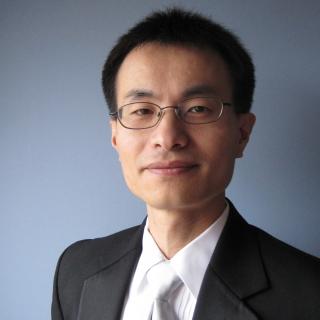
Peidong Yang received a B.S. in chemistry from University of Science and Technology of China in 1993 and a Ph.D. in chemistry from Harvard University in 1997. He did postdoctoral research at University of California, Santa Barbara before joining the faculty in the department of Chemistry at the University of California, Berkeley in 1999. He is currently professor in the Department of Chemistry, Materials Science and Engineering; and a senior faculty scientist at the Lawrence Berkeley National Laboratory. He is S. K. and Angela Chan Distinguished Chair Professor in Energy. He was recently elected as MRS Fellow, and as a member of the National Academy of Sciences and American Academy of Arts and Sciences.
He is the director for California Research Alliance by BASF, and co-director for the Kavli Energy Nanoscience Institute. He is one of the founding members for DOE Energy Innovation Hub: Joint Center for Artificial Photosysnthesis (JCAP) and served as its north director for the first two years. Yang is an associate editor for Journal of the American Chemical Society and also serves on editorial advisory board for number of journals including Acct. Chem. Res. and Nano. Lett. He was the founder of the Nanoscience subdivision within American Chemical Society. He has co-founded two startups Nanosys Inc. and Alphabet Energy Inc. He is the recipient of MacArthur Fellowship, E. O. Lawrence Award, ACS Nanoscience Award, MRS Medal, Baekeland Medal, Alfred P. Sloan research fellowship, the Arnold and Mabel Beckman Young Investigator Award, National Science Foundation Young Investigator Award, MRS Young Investigator Award, Julius Springer Prize for Applied Physics, ACS Pure Chemistry Award, and Alan T. Waterman Award. According to ISI (2002-2012, Thomas Reuters), Yang is ranked as No. 1 in materials science and No. 10 in chemistry based on average citation per paper. His main research interest is in the area of one dimensional semiconductor nanostructures and their applications in nanophotonics and energy conversion

He is currently working as a Researcher with Professor Dr. Lance C. Seefeldt at Utah State University. He received his PhD in Organic Chemistry from Nankai University, Tianjin, China in 2007 and PhD in Biochemistry from Utah State University in 2013. After that, he continuously worked with Dr. Lance Seefeldt as postdoctoral fellow focusing on understanding nitrogenase mechanism with a broad range of interdisciplinary strategies, including biochemical, biophysical, and electrochemical methods. His research interests include metalloenzymes, small molecule activation, and relevant catalyst design and mechanistic studies.

Kevin earned a BS in Chemical Engineering with minors in Electrical Engineering and Mathematical Sciences from Michigan Technological University. He has a strong interdisciplinary background from his time working in a variety of industries. His PhD research involves the production of pharmaceuticals in transgenic plants within the scope of the NASA CUBES project.

Spencer is a senior at UC Berkeley studying MCB and astrophysics. He joined CUBES in October 2021 and is currently working with Aaron Berliner on an examination of habitability in black hole accretion disks. Outside of astrobiology, Spencer is interested in music and education, and helps direct an organization providing free college admissions prep to communities in the Bay Area. In his spare time, Spencer likes to read, play piano, and game.

Cindy is a second-year undergrad at UC Berkeley studying computer science. She is interested in applying CS skills to space research. At CUBES, she is working on building object oriented models to simulate and optimize a biologically-driven Mars exploration mission. Outside of academics, she practices Wushu (Chinese martial arts) and goes on spontaneous adventures to the beach.

Hao Zhang is a 4th year graduate student in Chemistry at University of California Berkeley with Prof. Peidong Yang. She received her B.S in Material Science and Engineering from University of Science and Technology of China (USTC) in 2014.
Her research is focused on the CO2 fixation via photosynthetic biohybrid systems(PBSs) in the MMFD division. The non-photosynthetic bacteria could be photosensitized by using the semiconductors to reduce the CO2 into multicarbon products, such as acetate, ethanol, and other valuable products. Such PBSs inherits both the high light-harvesting efficiency and the superior catalytic performance from solid-state semiconductors and whole-cell microorganisms, respectively.
Shuyang is a post-doctoral research associate working with Dr. Bruce Bugbee in the Crop Physiology Laboratory at the Utah State University. Her current research is focused on improving the understanding of whole-plant photosynthetic and morphological responses of food crops to light quality and quantity, primarily under artificial light in controlled environments. She received her PhD from the horticulture department at the University of Georgia in August 2017.

Liangzi is a graduate student in Criddle-group at Stanford University. She is working on improving the metabolic function in autotrophic microorganisms to enhance carbon efficiency and produce high-performance bioplastics as part of CUBES.
She is interested in sustainable biomanufacturing, bioremediation, as well as carbon capture and utilization.